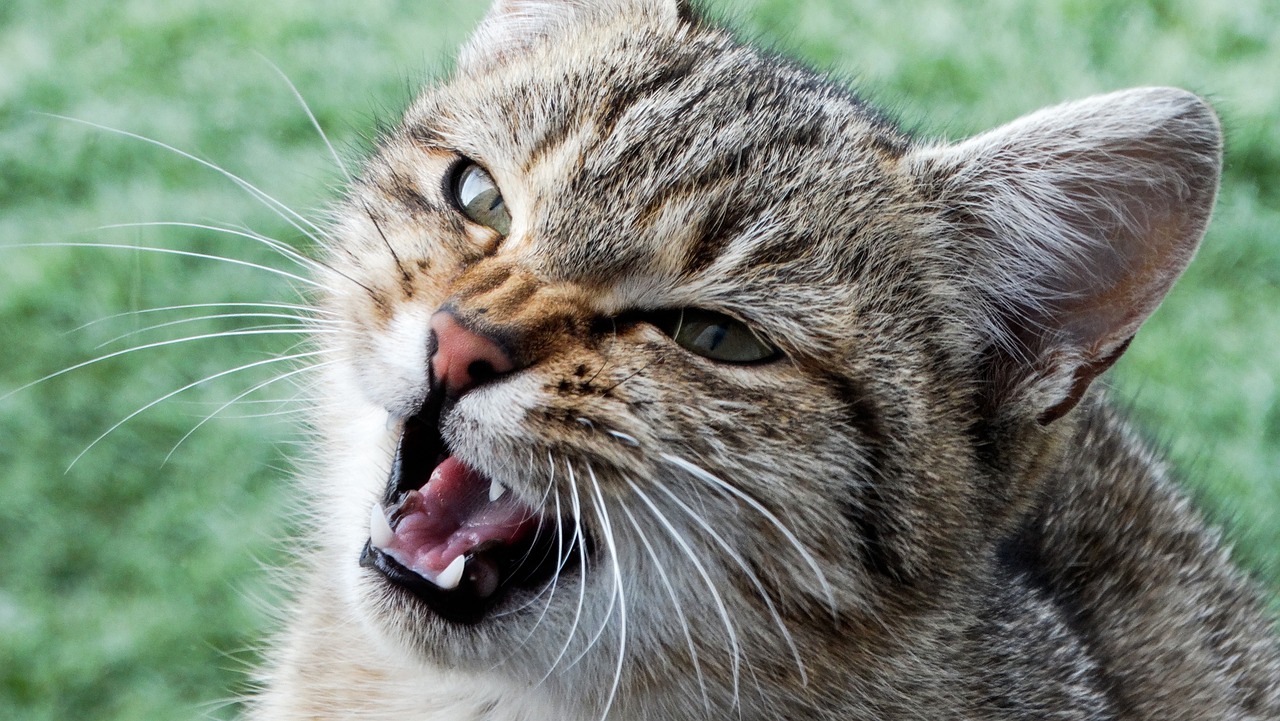
Conquer Tiger Syndrome: Taming Aggression in Cats
Tiger Syndrome, a form of feline aggression linked to hunger and feeding habits, exhibits its presence through various telltale signs. As a responsible pet owner, understanding these manifestations is essential in addressing the issue effectively.
Predatory aggression
Your feline friend might lurk around the house and unexpectedly pounce on you, biting or scratching. This behavior stems from their instinctual hunting nature. Cats are natural-born hunters, and when hunger strikes, their predatory instincts can take over, leading to aggressive behavior.
Irritation aggression
During meal preparation, your cat may become agitated, resulting in scratching or biting when you offer its food. This behavior might indicate that your cat is not happy with the timing or the type of food provided. Being territorial animals, they might feel a sense of ownership over their food, and any interference during mealtime could trigger their irritation.
Bulimia
Tiger Syndrome can also manifest as an insatiable appetite, leading to excessive eating habits. In such cases, cats tend to eat voraciously, even when not hungry. This overeating can be driven by anxiety or stress, leading to aggressive outbursts, especially during mealtime.
Unraveling the Causes of Tiger Syndrome
It’s vital to delve into its underlying causes to effectively address Tiger Syndrome. The root of the issue lies in your cat’s eating habits and the way you feed them. Being natural nibblers, cats prefer consuming small quantities of food throughout the day. However, feeding them two large meals, especially if it’s wet food, fails to match their metabolic needs, leading to impatience and excitement during mealtime.
Additionally, low-quality food with inadequate protein content can exacerbate the problem, triggering aggressive behavior. This type of food fails to provide the necessary nutrients, leaving your cat feeling unsatisfied and agitated.
The result? Your cat’s hunger-driven aggressiveness can strain your relationship with them, causing distress for both pet and owner. Addressing these dietary issues is crucial in managing Tiger Syndrome effectively.
Note: It is crucial not to confuse this aggression with territorial behavior exhibited when cats feel threatened during feeding time. This type of aggression is usually a consequence of poor socialization or feline overpopulation. It is essential to observe your cat’s behavior carefully to differentiate between territorial aggression and Tiger Syndrome.
Corrective Measures for Tiger Syndrome

Fear not, as Tiger Syndrome can be easily rectified with some simple adjustments in your cat’s routine. As a caring and observant pet owner, you can make a positive impact on your cat’s behavior by implementing the following strategies:
Change the diet
If your cat primarily consumes wet food, consider introducing dry food to their meals. Dry food provides an opportunity for self-service feeding, allowing your cat to eat according to their natural instincts. You can significantly reduce hunger-related aggression by offering a balanced diet that satisfies their nutritional needs.
Control the portions
Precisely defining the daily food requirements for your cat is essential to avoid overeating. Consult your veterinarian to determine the appropriate portion size based on your cat’s age, size, and activity level.
Automatic Cat Feeders
Allowing your feline companion to have access to food at all times can help mitigate aggression. Cats are independent creatures and prefer to graze throughout the day. Providing automatic cat feeders can prevent them from becoming overly hungry, reducing the likelihood of aggressive outbursts.
A Step Towards Recovery: Treatments for Tiger Syndrome
In most cases, addressing the dietary issues and modifying feeding habits can effectively resolve Tiger Syndrome. However, in severe cases where aggressive behavior becomes deeply ingrained, a visit to the veterinarian is crucial. Your vet may recommend psychotropic drugs to reduce aggression and break the vicious cycle.
Psychotropic medications can help curb aggression by calming the cat’s nervous system and reducing feelings of anxiety and stress. Additionally, these medications can reduce the sensation of hunger, which can be beneficial in transitioning to a new and healthier diet.
Remember: Consulting a veterinarian is essential to diagnose Tiger Syndrome accurately, establish behavioral therapy, and determine the best course of treatment if needed. Your veterinarian will conduct a thorough examination and work with you to create a personalized plan to help your cat overcome Tiger Syndrome and lead a happy, healthy, and aggression-free life. By addressing this issue promptly and effectively, you can strengthen the bond between you and your feline companion, creating a harmonious and loving environment for both of you to thrive.





